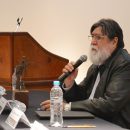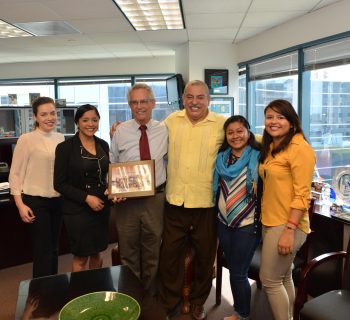While some move away from home for college or a new job thereafter, others stay right where they are in the hope they can create something even sweeter for those around them.
"I grew up in Long Beach. I've lived here for over 56 years," said Jessica Quintana, longtime executive director at Centro CHA. "This city is very important to me. It's where I live, my children live and my grandparents live here; my whole life is here."
Quintana has had her heart in Long Beach for as long as she can remember. At 18, she took a part-time job at the Westside Boys and Girls Club. Since then, she's been helping create safer spaces for at-risk youth in the community to grow and thrive.
Since then, she's worked for the city (where she has piled up accomplishments), including manning an anti-tobacco coalition that helped make it harder for young people to have access to cigarettes and other tobacco products.
“We knew that the (tobacco) industry was targeting youth and youth of color, especially African American and Asian Pacific Islander youth," she said. "It was intentional through advertisement and directed to vulnerable, low-income with intent to sell tobacco to younger youth and getting addicted to the product."

Jessica Quintana, Executive Director of Centro Cha in Long Beach on Thursday, September 10, 2020. Centro Cha is a non-profit Hispanic/Latino human and social service agency formed in 1992 and incorporated in 1999.
With her help, the city implemented tobacco laws that made store clerks confirm legal age, as well as place tobacco products behind the counter to make them less available for youth to purchase or steal.
When Quintana joined the Centro CHA team in 2002, she said that immediately she had her work cut out for her, with resources lacking for at-risk youth. She dived headfirst into work, and has been hard at it for nearly 20 years, yet there's still plenty to be done, she said.
"When I came onboard in Centro CHA, our city was experiencing the worst rates of homicides, high dropout rates of youth in high school, high violence rates and high youth incarceration," she said. "We had the highest teen pregnancy in the state of California, and all of this means that youth are suffering."
Centro CHA was established in 1992 to help maintain the wellbeing of underrepresented and low-income Hispanic children, youth and families. Partnerships were forged with the Long Beach Police Department and other organizations. Now many youth who find themselves in some kind of trouble with school or the law are referred to Centro CHA to work through their issues and move forward to live productive and law-abiding lives.
Quintana said that she and her staff got to work implementing programs that provided youth with mentors and positive engagement, including connecting them with colleges, visiting museums or introducing them to Long Beach landmarks. For many, although they were born in the city, they had not had the opportunity to experience places that are quintessential to Long Beach tourism.
"Some of these kids have been in survival mode since they were very young," Quintana said. "Being connected to civic engagement, you’d be surprised how much of Long Beach landmarks people have not seen.
"Some don’t even know what the port (of Long Beach) looks like. They haven't been to El Dorado Park, they haven't been to the aquarium and they've never been up close to the Queen Mary."
The takeaway for Quintana is that resources make a world of a difference for youth and adults alike, especially for those at and below the poverty line. People might not know where to go if they need any kind of help, including job, healthcare and educational resources. And for those with any kind of criminal background, finding help is even more difficult. For many, access to basic resources like a computer, phone or internet is a luxury that's hard to afford.
"When someone's focus is on their next meal, or finding a way to make rent that month, it's hard to make something like education a priority," Quintana said. "So if there's some way that we can help someone with resources to help pay their rent, then we can focus on other things that improve quality of life, like make time for civic engagement or touring a college campus.
"When you're still a child and need to focus on helping your parents afford food for your siblings or afford rent, there's no time to be a child," she added.
Now with the coronavirus looming and making it difficult for nonprofits to connect physically with people, Quintana said that she and her team work around the clock to continue to provide assistance and mentoring to their clients.
For example, the workforce program still provides people with work-appropriate clothing and transportation resources like bus passes. Students still are able to pick up school supplies, and mentors keep in contact with their mentees through online platforms.
It's all work, but this time with socially-distant protocols in mind, she said.
"I love my city. I want our city to thrive and do well and I want to see people care about youth and our families and our underserved Latino communities," Quintana said. "Until people care more, and show that they care by advocating for our youth, there's still so much work to be done."
For more information about Centro CHA, go to centrocha.org.







